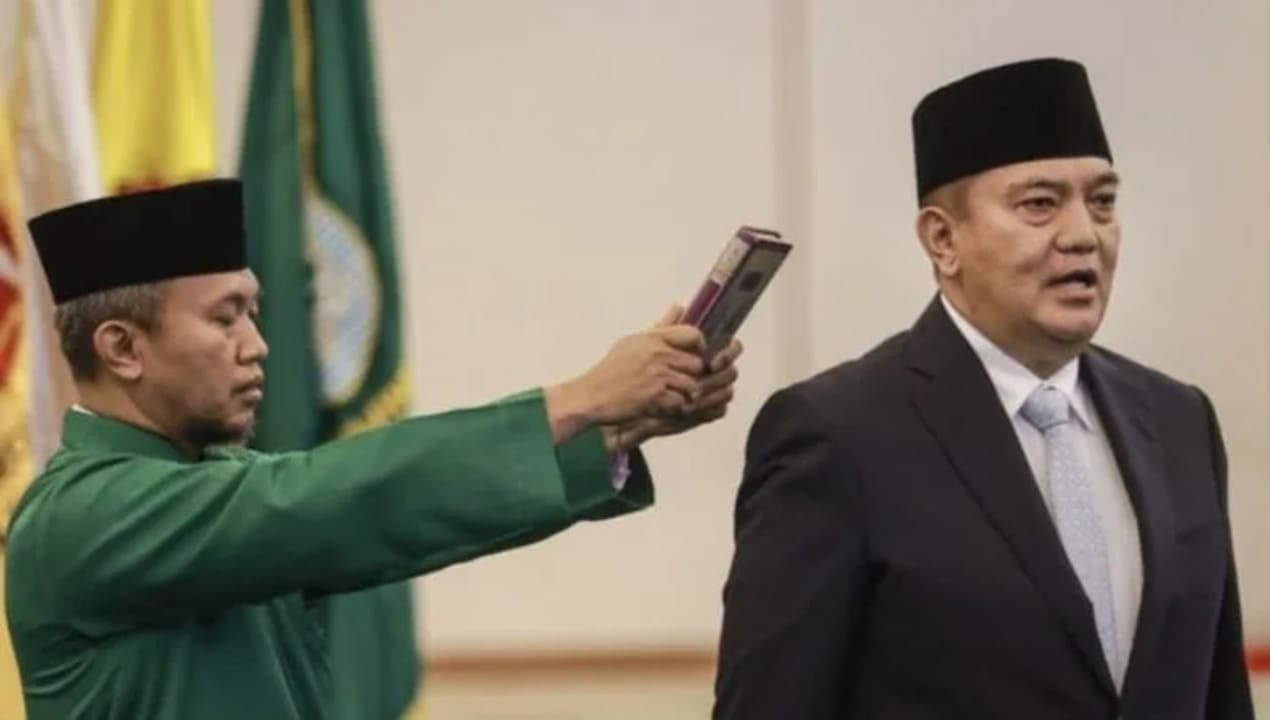
Independent Report – On Monday, May 19, 2025, Sultan Najamudin, the Chairman of Indonesia’s Regional Representative Council (DPD). Officially appointed Mohammad Iqbal as the Secretary-General of the DPD at the Nusantara IV Building. This event marked a significant step in strengthening the relationship between the police institution and legislative bodies.
Previously, Inspector General Mohammad Iqbal was rotated from his position as Chief of Police in Riau Province. To become a high-ranking officer in the Baharkam Polri (Security Maintenance Agency of the Indonesian National Police). This transfer was part of the assignment related to his new role in the DPD.
The appointment of a senior police officer to a key position in a legislative body raised questions among observers. But these concerns were addressed by members of the Indonesian parliament. Rudianto Lallo, a member of Commission III of the House of Representatives (DPR). Clarified that the appointment complies fully with the existing legal framework governing the Indonesian National Police.
According to Rudianto, this placement aligns with the provisions of Law Number 2 of 2022 concerning the Indonesian National Police. The law provides a legal basis for assigning high-ranking police officers to positions outside of the police institution itself, under certain conditions.
Specifically, Article 28, Paragraph 3 of the Police Law states that police officers can hold positions outside the police institution only after resigning or retiring. However, active assignment of officers outside the police is also possible if the position is relevant to police duties and is authorized by the Chief of Police.
Rudianto emphasized that this legal provision allows for flexibility. Enabling police officers to take on roles beyond traditional police functions when such roles support police duties and the overall national interest. The decision to assign Mohammad Iqbal as Secretary-General of the DPD is consistent with this regulation. As it is considered relevant to police functions and was done under the direction of the Chief of Police.
Also Read : Bahlil Prioritizes National Interests in Postponing Golkar Bali Musda
He further explained that, based on authentic legal interpretation and a logical reading of the law, if the position is related to the police’s role and responsibilities. And also if the Chief of Police assigns the officer accordingly, then it is lawful for an active police officer to assume such a role. This interpretation is supported by the Constitution of the Republic of Indonesia, specifically Article 30, Paragraph 4 of the 1945 Constitution, which mandates the police’s role in national defense and security.
Moreover, the law encourages inter-institutional cooperation and synergy to achieve state goals more effectively. Assigning a police officer to a position within the DPD fits within this spirit of collaboration and institutional integration.
Rudianto, a member of the NasDem Party faction, highlighted that the placement of Inspector General Iqbal as Secretary-General of the DPD should be viewed comprehensively. It requires considering both philosophical and regulatory aspects to fully understand the significance and legality of this assignment.
He pointed out that this kind of cross-institutional assignment is not a new practice in Indonesia. As long as the assignment meets institutional needs and supports cooperation between agencies, it is legally valid and beneficial.
Rudianto also underlined the importance of looking at the bigger picture regarding such appointments. The move not only respects the law but also strengthens synergy among government bodies. Which ultimately helps improve governance and national administration.
In summary, the appointment of Mohammad Iqbal as Secretary-General of the DPD is a lawful action in line with Indonesian police regulations and constitutional mandates. It exemplifies the evolving role of police officers in public service. Extending beyond traditional law enforcement to contributing in legislative administration.
This development reflects a broader trend of enhancing cooperation between security forces and legislative institutions, aiming to support national stability and governance. By placing experienced police officers in strategic government positions. Indonesia seeks to leverage their expertise in maintaining public order and supporting state functions.
In conclusion, Mohammad Iqbal’s new role in the DPD is legally justified and strategically important. It is a positive example of how Indonesia’s legal and institutional frameworks adapt to current needs, ensuring that officers with the right skills and experience serve in capacities that benefit the nation as a whole.
Also Read : Green Energy Surge in Asia-Pacific: Navigating Complex